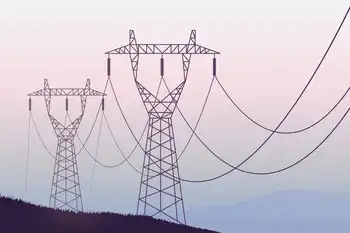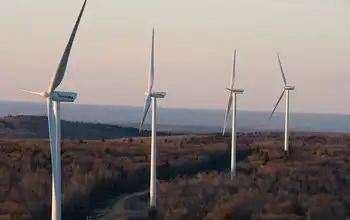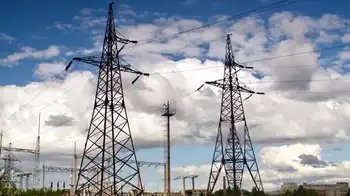Federal Coal Plan
NFPA 70e Training - Arc Flash
Our customized live online or in‑person group training can be delivered to your staff at your location.

- Live Online
- 6 hours Instructor-led
- Group Training Available
CEA Coal Phase-Out Flexibility supports equivalency agreements, Canadian Infrastructure Bank financing, and coal-to-gas conversion to cut GHG emissions, protect electricity rates, ensure grid reliability, and sustain investor confidence across Canada.
Key Points
CEA Coal Phase-Out Flexibility uses tools to cut GHGs while protecting rates, reliability, and investor confidence.
✅ Equivalency agreements to tailor regional compliance
✅ Canadian Infrastructure Bank financing for clean projects
✅ Coal-to-gas conversions to cut emissions, maintain reliability
CEA Stresses Consumer and Investor Protection, Supports Flexibility Measures
Ottawa (November 22, 2016) – The Honourable Sergio Marchi, President and CEO of the Canadian Electricity Association, issued the following statement today in response to the Government of Canada’s announcement regarding the accelerated transition from traditional coal-fired power:
“With an electricity generation mix over 80% greenhouse gas (GHG)-free, and a net-zero by 2050 target in place, Canada’s electricity system is among the cleanest in the world. Electricity companies have reduced emissions 30% since 2005, and continue to do so at a pace unmatched by any other sector of the economy.
Prior to yesterday’s announcement, 93% of Canada’s traditional coal-fired generating capacity was scheduled to come offline by 2030. The Government’s announcement accelerates the transition away from traditional coal power, recognizing that cleaning up Canada’s electricity is critical to meeting climate pledges.
CEA has previously communicated to the Government its concerns regarding the potential impacts, such as rate increases, and broader implications of decarbonizing the grid that an accelerated coal phase-out may have on the regional economies reliant on coal-fired electricity. As they deliver further emissions reductions, individual electricity companies must have the flexibility to:
- Minimize the impact on Canadians’ electricity bills;
- Maintain safe and reliable power to customers; and,
- Safeguard the investor confidence required to continue this transition.
With this in mind, I am heartened to see three specific flexibility mechanisms embedded in the announcement: equivalency agreements; the use of the Canadian Infrastructure Bank to finance projects; and the conversion of coal plants to gas.
While it is too soon to know if these mechanisms will be sufficient, flexibility is the key to achieving the outcomes that Canadians want - GHG emission reductions and better air quality - with the least cost and disruption to their lives and livelihoods.”
Key Facts:
- With a generation mix that is already over 80% greenhouse gas (GHG)-free, Canadian electricity is among the cleanest in the world.
- The sector has reduced emissions by 30% since 2005, a nationwide climate success in electricity unmatched by any other industrial sector.
- Electricity is responsible for only 11% of the total Canadian carbon foot print. That number continues to decrease, even as Canada will need more electricity to hit net-zero according to the IEA.
- The Canadian electricity sector has reduced its emissions of non-GHG pollutants (SO2, NOx, Mercury) by 50% since 2000.
- In 2015, coal-fired power represented 11% of Canada’s electricity generation mix, as compared to over 30% in the US.
About the Canadian Electricity Association:
Canadian Electricity Association (CEA) members generate, transmit and distribute electrical energy to industrial, commercial, residential and institutional customers across Canada every day. From vertically integrated electric utilities, independent power producers, transmission and distribution companies, to power marketers, to the manufacturers and suppliers of materials, technology and services that keep the industry running smoothly -- all are represented by this national industry association.











